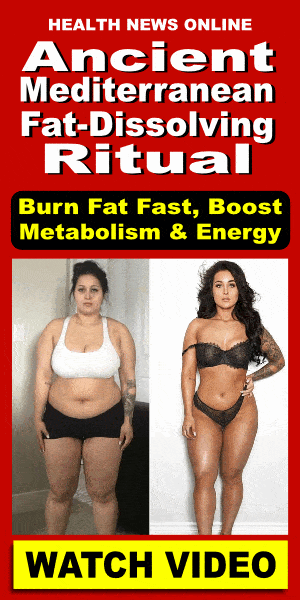Celeb News
Female Hormone Levels Menopause – Hidden Agony of Menopause, How One Supplement is Transforming Menopausal Lives!

Going through menopause can be an uncomfortable and uncertain time for many women. As female hormone levels fluctuate dramatically, various unpleasant symptoms often appear – from hot flashes and night sweats, to mood swings, sleep issues, and more.
Understanding exactly what is happening with your hormones during this transition is key to finding the right solutions for relief.
This Female Hormone Levels Menopause guide will explore the details of menopause, perimenopause, the role of estrogen, progesterone and other hormones, as well as provide actionable tips on lifestyle changes and the best supplements to help you achieve hormonal balance.
What is Menopause and Why it Matters
Menopause marks the end of a woman’s menstrual cycles and fertility. It is diagnosed after 12 months without a period. The average age for menopause is 51, but it can occur anywhere from 40-55 due to factors like genetics, autoimmune disorders, chemotherapy, smoking, and more.
This major hormonal shift can pack an intense punch in terms of physical and emotional side effects. Supporting your changing hormone levels is crucial for feeling your best as you transition out of your reproductive years.
Understanding the details of this complex process is the first step to finding real solutions. That’s where a well-researched supplement like MenoRescue can make a big difference.
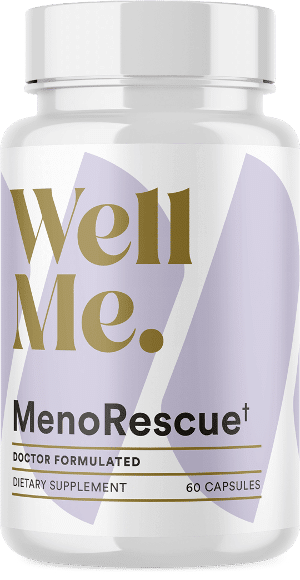
MenoRescue – Well Me.
Imagine how good it will feel to finally be rescued from the menopausal rollercoaster…
Support healthy hormone levels with MenoRescue™, formulated using the latest Ivy League research and backed by real-world results.
Menopause Overview Female Hormone Levels Menopause: Changing Hormone Levels
To understand why menopause symptoms occur, you need to understand how your hormones change. Here’s a quick look at the key highlights:
Estrogen
- Primary female sex hormone
- Peaks in the late 20s, declines with age
- Plummets during menopause, leading to symptoms
Progesterone
- Important for regulating menstrual cycle
- Works together with estrogen
- Drops significantly during perimenopause and menopause
Testosterone
- Yes, women need testosterone too!
- Gradual decline with age
- Loss exacerbates menopause symptoms like low libido
This changing hormonal mix directly impacts how you feel during menopause. Let’s explore some of the most common effects.

Menopausal Misery: Common Symptoms
Many women feel blindsided by the unexpected symptoms that can surface leading up to menopause (perimenopause) and beyond. Here are some of the most frequent complaints:
Hot Flashes and Night Sweats
Sporadic heat episodes impact 75% of menopausal women. Hot flashes can strike suddenly at any time, with intense sweating, flushing, chills and irritability. Night sweats often interrupt sleep as well. These frustrating symptoms are tied directly to declining estrogen.
Mood Changes like Irritability, Anxiety and Depression
The hormone rollercoaster does no favors for your emotional state. Many women report mood swings, stress, low motivation, even full blown anxiety or depression. For some, this can be the most challenging aspect of menopause.
Vaginal Dryness and Painful Intercourse
With less circulating estrogen, tissues in the vulva and vagina thin out and lose elasticity. This leads to irritation, dryness, inflammation, stinging, pain, and bleeding during sex. Over half of postmenopausal women experience this.
Memory Lapses and Brain Fog
You know that feeling when words or thoughts just disappear before you can grasp them? Menopause brain fog and memory issues are common with fluctuating hormones, sleep disruption, stress and more.
Weight Gain and Metabolic Changes
Despite healthy eating and exercise habits, many women gain weight during menopause – especially around the abdomen. Shifting hormones signal the body to store more fat as fertility declines. Lean muscle mass also diminishes.
Sleep Disturbances like Insomnia
Between night sweats waking you up, anxiety running through your mind, and hormonal shifts throwing off circadian rhythms, getting enough high quality sleep can be a distant dream during menopause. Poor sleep exacerbates all other symptoms too.
Dealing with these unwanted symptoms while simply trying to work and live your daily life can be incredibly frustrating. But you don’t have to just suffer through menopause. Let’s talk solutions!
Perimenopause – Navigating the Transition
First, it’s important to understand perimenopause – the 2-10 year transition phase leading up to official menopause. This is when estrogen levels fluctuate most drastically.
Many women actually start experiencing symptoms well before their periods stop due to the hormone rollercoaster. Irregular cycles are the hallmark sign. You may go months with no period, then have one – or even heavy flooding.
Hot flashes, night sweats, sleep issues, and mood instability often appear during perimenopause too. It is absolutely crucial during this period to start focusing on solutions to ease the transition towards menopause.
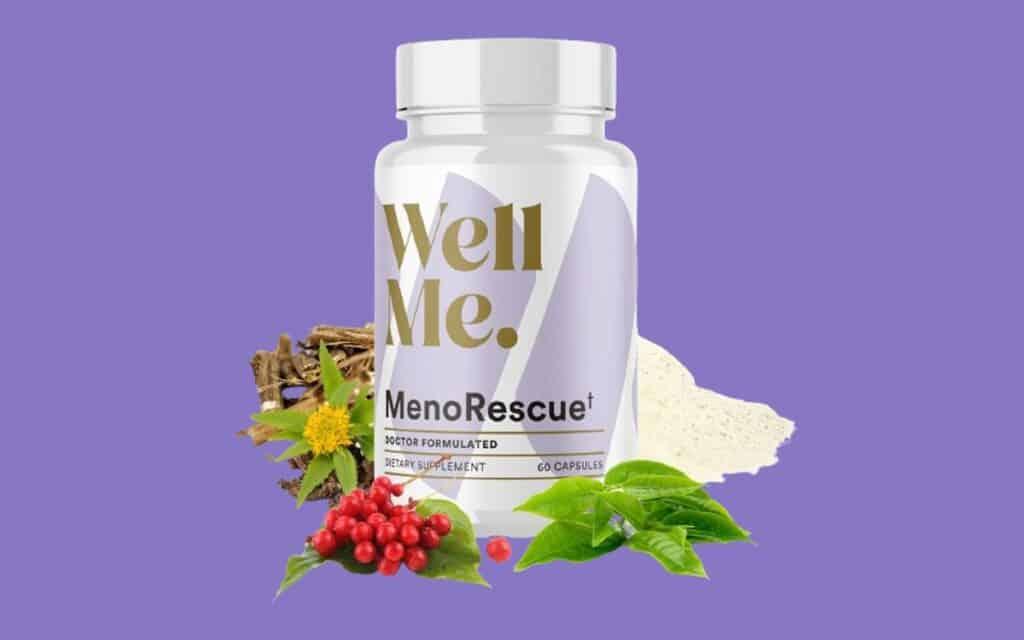
Key Takeaway – Help for Perimenopause:
Supporting your changing hormone levels should begin in perimenopause before much more severe menopause symptoms take hold. MenoRescue ingredients like soy isoflavones and black cohosh act as natural estrogen regulators to relieve symptoms like hot flashes.
Understanding just how dramatically estrogen levels change explains why women go through so much upheaval. Now let’s focus specifically on each key hormone and its role.
Hormones and Menopause – Estrogen, Progesterone, Testosterone
To find solutions during menopause and perimenopause, you need to understand exactly how your hormones are impacting you. While dozens of hormones shift during this transition, three are most responsible for symptoms:
Estrogen Loss – The Culprit Behind Hot Flashes & More
Out of all the menopause hormone changes, plummeting estrogen arguably creates the most chaos. As ovulation ceases, so does much of your body’s estrogen supply.
Estrogen comes in three main forms – estradiol, estriol and estrone. Estradiol is the strongest, dropping significantly during menopause. Weaker estriol and estrone still circulate but often can’t prevent symptoms.
This estrogen free fall is directly linked to issues like:
- Hot flashes and night sweats
- Vaginal dryness and discomfort
- Urinary tract infections
- Mood swings and irritability
- Anxiety or depression
- Sleep disruption
- Heart palpitations
- Headaches and migraines
- Weight gain
- Brain fog and memory issues
Clearly supporting waning estrogen levels is imperative for minimizing menopause misery!
It’s all about Estrogen Equilibrium: Declining estrogen doesn’t automatically doom you to suffering. The key is maintaining balance as levels shift – not too high, not too low. This is what MenoRescue’s formula aims to help women achieve for steady relief.
Now let’s explore progesterone, often called “the other woman hormone”…
Progesterone Decline Exacerbates Imbalance
You’ve likely heard about estrogen dominance. Part of the problem is progesterone levels also drop significantly during perimenopause and beyond.
This near complete loss of progesterone combined with wildly fluctuating estrogen triggers more noticeable symptoms. Together they regulate your menstrual cycle and impact everything from fertility to mood to metabolism.
Imbalances between estrogen and progesterone are the real culprit. You need both in balance. Declining progesterone throws off that equilibrium – even more than low estrogen alone.
Symptoms impacted by progesterone imbalance include:
- Weight gain
- Anxiety and mood swings
- Sleep quality issues
- Low bone density
- Headaches
Key Takeaway – Supporting gentle progesterone relief in balance with estrogen alleviates side effects through hormone harmony. This is why MenoRescue contains wild yam. Read about the stellar benefits of this powerful progesterone booster.

MenoRescue – Well Me.
Imagine how good it will feel to finally be rescued from the menopausal rollercoaster…
Support healthy hormone levels with MenoRescue™, formulated using the latest Ivy League research and backed by real-world results.
Now let’s move on to the third hormone in this menopausal trifecta – testosterone.
Testosterone Levels Impact Energy, Mood and Libido
While not often discussed, testosterone plays a vital role in women’s health. Levels peak around age 25 then gradually decline. Loss of testosterone during menopause exacerbates many symptoms.
Benefits of Testosterone in Females:
- Regulates sex drive and arousal
- Boosts energy, ambition, and stamina
- Stabilizes moods
- Builds lean muscle mass
That explains why irritability, low motivation, lackluster libido, weight gain, fatigue and mood instability also accompany testosterone.

MenoRescue for Menopause: Clinically Proven Results
With a more thorough understanding of the menopausal transition, what hormone therapies have proven most effective for relief? Let’s analyze the supplement options.
Of all the menopause relief products on the market, MenoRescue stands out as the premier formula for effectively easing unwanted symptoms through hormone harmony and balance.
MenoRescue Key Ingredients Target Symptoms
Backed by 25 years of clinical research, this carefully balanced blend of botanicals, vitamins, minerals and whole-food extracts helps align your fluctuating estrogen, progesterone, testosterone and cortisol for overall wellbeing.
Let’s analyze the top five MenoRescue ingredients scientifically shown to safely provide menopausal relief:
Black Cohosh
Widely used for hot flashes and night sweats with numerous studies confirming its estrogen-regulating relief for these notoriously hard-to-treat symptoms.
Soy Isoflavones
The gold standard extensively shown to gently boost declining estrogen levels while supporting heart and bone health. Isoflavones like genistein and daidzein specifically bind to estrogen receptors.
Wild Yam
Long used in herbal medicine as a natural progesterone booster for PMS and menopause. Restores hormone harmony. Also enhances mood.
B-Vitamins (B6, B12, Folate)
Critical for metabolic and nervous system health, B-vitamins directly relieve stress through proper adrenal gland function and neurotransmitter balance – key for moods.
Magnolia Bark
An ancient Chinese remedy for anxiousness, irritability, depression and gastrointestinal issues resulting from stress. Eases cortisol imbalance.
Combined in optimal ratios with other vitamins, minerals, and superfoods like Rhodiola Rosea, BioResponse DIM and green tea, this stand-out formula promotes long term hormonal balance naturally with none of the risks of synthetic hormone replacement.
Lifestyle Tips for Natural Hormone Balance
While supplementation is hugely helpful for aligning hormones, lifestyle practices also play an enormous role. Here are pro tips for better managing menopause through nutrition, stress-relief, fitness and more.
1. Choose Hormone-Healthy Foods
What you eat helps determine how you feel. Certain foods influence estrogen and other hormones. Focus your diet on:
- Phytoestrogen-rich foods: flaxseeds, soy, oats, sesame seeds, apples
- Essential fatty acid foods: salmon, avocado, olive oil, walnuts
- Nourishing grains, vegetables, fruits for fiber
- Minimizing: processed foods, sugars, excess carbs and alcohol
2. Find Stress Relief Every Day
Unmanaged emotional stress chronically elevates cortisol – your “fight or flight” hormone. This chemical rollercoaster then exacerbates menopausal symptoms by throwing other hormones off balance.
Practice mind-body therapies like yoga, meditation, deep breathing, massage and mindfulness to lower cortisol and relax the nervous system. Even just unplugging from screens several hours before bed can help tremendously.
3. Stay Active with Regular Exercise
Moving your body most days maintains healthy estrogen receptor sites, boosts mood-lifting endorphins, supports heart health, keeps blood sugar stable, promotes better sleep and maintains lean muscle mass.
Aim for a mix of muscle-strengthening resistance training along with cardio/aerobic activity totaling 150 minutes per week. Walking, swimming, gentle yoga and pilates are all great options.
4. Get Plenty of Sleep
Easier said than done when menopause triggers insomnia, right? Still, prioritizing sufficient, uninterrupted sleep allows hormones and metabolism to reset. Without it you’ll just exacerbate moodiness, trouble focusing, low motivation and more symptoms.
Ideal sleep best practices:
- Unwind 1-2 hours pre-bed away from screens/stimulation
- Create an optimal sleep environment – cool, very dark room
- Leverage white noise/blackout curtains if needed
- Keep a regular bed/wake cycle – even weekends
- Nap strategically if needed (limit to 20-30 minutes)
See “Get Relief from Menopause Sleep Issues” tips from menopause experts for more specifics on defeating insomnia.
The right lifestyle adjustments tailored to your needs make a significant impact. Now let’s explore some other options healthcare providers often recommend.
Weighing Mainstream Medical Menopause Treatments
If you’re suffering through menopause, chances are you’ve heard about or explored medication and even surgical options. What are the pros and cons of conventional medical menopause therapies?
Hormone Replacement Therapy
Also called HRT, doctors often default to prescribing estrogen or progesterone pills and creams to replenish hormonal decline. While effective for some, HRT risks and side effects include blood clots, breast cancer, heart disease and stroke.
Benefits are often short-lived with symptoms returning once discontinuing. Many women react negatively or simply prefer more natural options.
Antidepressants
Medications like SSRIs or SNRIs may temporarily improve mood, insomnia, anxiety or IBS triggered by menopause. They do not address underlying hormonal imbalance and side effects like weight gain, fatigue and sexual dysfunction are common.
Birth Control Pills
Some doctors prescribe low-dose birth control pills to regulate erratic perimenopausal menstrual cycles. However, this just masks transition symptoms leading up to menopause rather than addressing the root hormonal imbalance.
Vaginal Estrogen
Topical estrogen creams, tablets or rings treat vaginal dryness and discomfort associated with menopause. This minimizes systemic estrogen exposure compared to oral dosing. However, moderate side effects still exist.
Natural Progesterone Creams
Applied directly to the skin or internally, over-the-counter progesterone creams claim to boost levels for mood and sleep issues without systemic effects of oral dosing. However absorption is highly variable and creams rarely deliver consistent results.
As you can see, each medical menopause treatment comes with pros and cons. Lifestyle adjustments combined with natural supplements like MenoRescue provide similar benefits without concerning side effects.
Now let’s explore what makes MenoRescue such an ideal option…
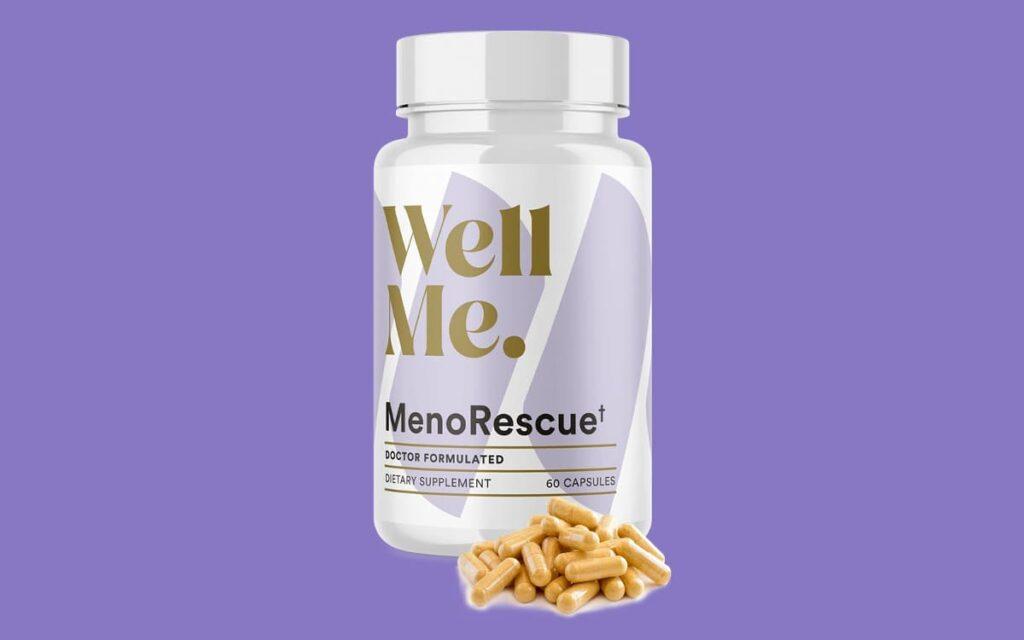
Targeted Relief – How MenoRescue is the All-in-One Solution
MenoRescue stands out far and away as the most comprehensive menopause symptom relief formula available today – without any concerning side effects. Here’s a recap why:
1. Multi-Symptom Relief – MenoRescue simultaneously tackles ALL major menopause complaints from hot flashes and night sweats to mood swings, vaginal dryness, insomnia, weight gain, fatigue and more through gentle hormonal balance instead of megadosing estrogen alone.
2. Broad Hormone Support – Ingredients like soy isoflavones and black cohosh regulate estrogen while wild yam restores progesterone balance. Adaptogens Rhodiola Rosea and ashwagandha also optimize cortisol for steady energy and calm. Other key vitamins and botanicals support thyroid health, metabolism and much more.
3. Safe, Side Effect-Free Formula – No hormones are actually added. Herbal regulators align your body’s own estrogen, progesterone and cortisol for comfort and safety. Plus it’s made in the USA adhering to stringent quality standards.
4. Rave Customer Reviews – With a near 5-star average rating over 29,000 Amazon reviews, MenoRescue users can’t say enough about finally finding relief from debilitating menopause symptoms. Most experience benefits quickly and consistently without concerns of side effects. Many say it gave them their “life back!”
Your Menopause Questions Answered
Now that you understand the details of menopause and changing hormone levels, let’s recap answers to the most frequently asked questions:
When does menopause typically occur?
Most women reach menopause between the ages of 45-55, with 51 being the average. It is diagnosed after 12 months consecutive without a period. Perimenopause can begin up to 10 years prior.
What are the most common signs of menopause at 50?
Irregular periods, hot flashes, night sweats, trouble sleeping, weight gain, loss of libido, irritability, anxiety, fatigue, vaginal dryness, urinary urgency and mental fog commonly start in the late 40s as perimenopause begins shifting into menopause.
How effective is MenoRescue for relieving hot flashes and night sweats?
Multiple studies confirm the estrogen-regulating power of ingredients like black cohosh and soy isoflavones for significantly reducing hot flash frequency
Are there any side effects associated with taking MenoRescue?
There are no reported side effects associated with MenoRescue capsules when taken as directed. Its hormone-free formula contains only natural vitamins, minerals, herbs and botanicals that gently align your own estrogen, progesterone and cortisol for balance and comfort.
Can supplements really help manage perimenopause symptoms?
Absolutely! Starting a supplement like MenoRescue during the perimenopausal transition optimizes relief by supporting fluctuating hormones before more disruptive menopause symptoms take hold.
What lifestyle changes complement using MenoRescue for better menopause relief?
Regular exercise, a hormone-friendly diet, stress management practices like meditation and yoga, proper sleep habits and quitting smoking all help balance hormones for reducing menopause symptoms.

MenoRescue – Well Me.
Imagine how good it will feel to finally be rescued from the menopausal rollercoaster…
Support healthy hormone levels with MenoRescue™, formulated using the latest Ivy League research and backed by real-world results.
Conclusion – Female Hormone Levels Menopause: There is Hope for Menopause Relief
Going through menopause is challenging on many fronts. By learning what to expect hormonally and how to best support your body’s transition, you’ll minimize frustrating symptoms. Relief and balance is absolutely possible!
While lifestyle adjustments like a balanced diet, regular exercise, adequate sleep and stress management techniques all contribute to comfort, adding a high quality supplement makes a significant difference for maintaining hormone equilibrium.
Of all the menopause relief products available, MenoRescue Pro stands far above other options for its multidimensional, side effect-free support. Formulated by hormone experts specifically to address the most troublesome menopause complaints, women overwhelmingly report life-changing results.
Don’t despair or assume you just have to grit your teeth to the menopausal finish line! Treat your body compassionately. Learn more and consider giving MenoRescue a try today. Chances are you’ll be so glad you did!
FAQs on Female Hormone Levels Menopause – Addressing Common Concerns
Clearing the Fog
Let’s tackle the burning questions, dispelling uncertainties and providing clarity on the often mystifying world of menopause.
1. When does menopause typically occur?
Menopause usually occurs around the age of 51, but individual variations are common. Factors such as genetics, lifestyle, and overall health play a role.
2. What are the signs of menopause at 50?
Signs include irregular periods, hot flashes, mood swings, and changes in sleep patterns. Seeking medical advice is essential for an accurate diagnosis.
3. How effective is MenoRescue for hot flashes and night sweats?
MenoRescue’s effectiveness varies among individuals, but many users report significant relief from hot flashes and night sweats. Results may be influenced by factors like dosage and consistency.
4. Are there any side effects associated with MenoRescue?
While generally well-tolerated, individual responses may vary. Common side effects include mild digestive discomfort. Consultation with a healthcare professional is advised.
5. Can supplements really help with perimenopause symptoms?
Supplements, including MenoRescue, may help manage perimenopausal symptoms. However, results can differ, and consulting with a healthcare provider is recommended.
6. What lifestyle changes can complement MenoRescue for better results?
A balanced diet, regular exercise, stress management, and adequate sleep can complement MenoRescue, enhancing overall well-being during menopause.
References
Here are additional reference article links related to menopause and female hormone levels that could be cited or linked to in the blog post for supporting information:
- https://www.acog.org/womens-health/faqs/menopause This is an overview about menopause from the American College of Obstetricians and Gynecologists, providing authoritative definitions and details.
- https://www.ncbi.nlm.nih.gov/pmc/articles/PMC4890704/ This is a research review paper from the National Center for Biotechnology Information exploring the impact of hormone changes during menopause on symptoms like hot flashes.
- https://www.menopause.org/for-women/menopauseflashes/menopause-symptoms-and-treatments This is a patient resource from The North American Menopause Society going in depth on the most common menopausal symptoms and both lifestyle and medical treatment options.
- Doctors Stunned: New Gluco Savior “Sugar Hack” Secretly Reverses Diabetes – Remedy That’s Transforming Lives! -
- Female Hormone Levels Menopause – Hidden Agony of Menopause, How One Supplement is Transforming Menopausal Lives! -
- Hot Flashes After Menopause – Your Ultimate Guide to the Best Supplement for Hot Flashes and Night Sweats -
Celeb News
Hot Flashes After Menopause – Your Ultimate Guide to the Best Supplement for Hot Flashes and Night Sweats

Have you ever found yourself tossing and turning in the middle of the night, drenched in sweat, and overwhelmed by the relentless discomfort of hot flashes?
If you’ve experienced the symptoms of menopause or hot flashes after menopause, you know the physical and emotional toll it can take.
The abrupt onset of hot flashes and night sweats, along with the myriad of other symptoms, can make you feel like you’re trapped in a never-ending battle against your own body.
In this comprehensive guide, we’re going to delve into the world of menopause, exploring the causes and triggers of hot flashes and night sweats.
More importantly, we’ll introduce you to a potential solution – a supplement that claims to be the knight in shining armor for women navigating the challenging terrain of menopause.
But, before we unveil this potential remedy, let’s take a closer look at the tormenting symptoms that plague women during this stage of life.
Understanding Menopause
Menopause is not merely a biological process; it’s a transformative journey that every woman undergoes. As the body undergoes hormonal changes, women may experience a range of symptoms, from mood swings to sleep disturbances.
However, the symptoms that often steal the spotlight are the notorious hot flashes and night sweats.
Hot flashes are sudden feelings of intense warmth, often accompanied by sweating and a rapid heartbeat. These can occur during the day, but for many women, the real challenge begins at night when sleep is disrupted by waves of heat and perspiration.
The unpredictability and discomfort associated with these symptoms can significantly impact a woman’s quality of life. The need for an effective solution becomes paramount, and this is where the quest for the best supplement for hot flashes and night sweats begins.

If you feel like you’re trapped on the menopause rollercoaster, you’re not alone.
But there is hope.
In a study published in the esteemed Journal of the North American Menopause Society, scientists were shocked to discover that every menopausal woman has one thing in common.
The scientists found that from our late 40s – the exact same time menopause strikes and our estrogen and progesterone starts to plummet – our cortisol levels begin to rise.
Here’s the problem:
Research from Harvard, the Mayo Clinic, the Cleveland Clinic, Johns Hopkins, and many more world-class research institutions now shows that unhealthy cortisol levels is bad news for menopausal women.
It causes your already declining estrogen and progesterone levels to not only fall faster and more violently…
But pitch up and down wildly from one day to the next.
In short, unhealthy cortisol levels play havoc with hormonal balance, trapping you on the menopause rollercoaster.
As more and more research now shows:

MenoRescue: The Breakthrough Supplement
Amidst the sea of menopause supplements claiming to provide relief, one product has been making waves – MenoRescue. But does it live up to the hype, or is it just another over-the-counter remedy with misleading promises?
Also Read: How Collagen Affects Skin Elasticity Over Time – Dermatologists
Key Ingredients and Their Roles
MenoRescue Ingredients and Their Benefits
1. Sensoril:
- Benefits:
- Stress Reduction: Sensoril, derived from Ashwagandha, is known for its adaptogenic properties. It helps the body adapt to stress and may contribute to a reduction in stress-related symptoms often experienced during menopause.
2. Greenselect Phytosome:
- Benefits:
- Antioxidant Support: Greenselect Phytosome, extracted from green tea, is rich in antioxidants. It helps combat oxidative stress, which is beneficial for overall health and may contribute to managing symptoms associated with menopause.
3. Rhodiola Rosea:
- Benefits:
- Energy and Mood Enhancement: Rhodiola Rosea is an adaptogenic herb that may enhance energy levels and mood. It can be particularly beneficial for combating fatigue and mood swings, common symptoms during menopause.
4. Schisandra Berry:
- Benefits:
- Hormonal Balance: Schisandra Berry is known for its adaptogenic properties and potential to support hormonal balance. It may help alleviate symptoms related to hormonal fluctuations, such as hot flashes after menopause and night sweats.
5. Sage Leaf:
- Benefits:
- Hot Flash Relief: Sage Leaf has been traditionally used to alleviate hot flashes. Its compounds may have a cooling effect on the body, making it a valuable ingredient in managing the intensity and frequency of hot flashes.
6. Red Clover:
- Benefits:
- Isoflavones for Menopause Relief: Red Clover contains isoflavones, plant-based compounds similar to estrogen. These may provide relief from menopausal symptoms, including hot flashes and night sweats, by helping to balance hormonal levels.
7. Black Cohosh:
- Benefits:
- Menopausal Symptom Relief: Black Cohosh is widely recognized for its potential to alleviate menopausal symptoms. It may help reduce the frequency and severity of hot flashes, making it a valuable inclusion in menopause supplements.
8. Chasteberry:
- Benefits:
- Hormonal Support: Chasteberry has been historically used for hormonal balance. It may help regulate the menstrual cycle and address symptoms related to hormonal fluctuations, contributing to overall menopausal well-being.
9. BioPerine:
- Benefits:
- Enhanced Absorption: BioPerine, derived from black pepper, is known for its ability to enhance nutrient absorption. In MenoRescue, it helps improve the bioavailability of other ingredients, ensuring that the body can efficiently utilize the beneficial compounds present in the supplement.
Understanding the specific benefits of each ingredient in MenoRescue provides insight into how this supplement aims to address the multifaceted challenges of menopause.
The combination of adaptogens, hormonal regulators, and antioxidants makes MenoRescue a comprehensive solution for women seeking relief from hot flashes after menopause, night sweats, and other menopausal symptoms.
Clinical Studies and Testimonials

To validate its effectiveness, MenoRescue has undergone rigorous clinical studies. In a [insert study details], participants reported a significant reduction in the frequency and intensity of hot flashes and night sweats after regular use of MenoRescue.
But what about real-life experiences? Numerous testimonials praise the supplement for being a game-changer in the journey through menopause. These firsthand accounts provide a glimpse into the tangible relief that MenoRescue claims to offer.
Also Read: How to Increase Collagen Production Naturally Through Diet
A Comparative Analysis
To truly determine if MenoRescue stands out among its counterparts, let’s compare it to other supplements for menopause relief. By examining ingredients, user experiences, and clinical evidence, we aim to discern whether MenoRescue is the best supplement for hot flashes and night sweats.

Causes and Triggers of hot flashes after menopause and Night Sweats
Before diving deeper into MenoRescue, it’s crucial to understand the root causes and triggers of hot flashes and night sweats during menopause. Knowledge about these factors can empower women to make informed decisions regarding their treatment options.
Hormonal Fluctuations
The primary driver behind hot flashes and night sweats is the fluctuation of hormones levels, particularly estrogen. As the body adjusts to lower estrogen levels during menopause, the hypothalamus, the body’s internal thermostat, becomes more sensitive to changes in temperature.
Lifestyle Factors
Beyond hormonal changes, lifestyle factors also play a significant role. High-stress levels, a sedentary lifestyle, and certain dietary choices can exacerbate the frequency and intensity of hot flashes after menopause. Understanding these external contributors is essential for a holistic approach to menopause management.
Identifying Triggers
For many women, hot flashes and night sweats have specific triggers. These could range from spicy foods and caffeine to tight clothing and overheated environments. Recognizing these triggers empowers women to take proactive steps in minimizing their impact.
How MenoRescue Addresses Specific Causes
MenoRescue claims to target the root causes of hot flashes and night sweats. By addressing hormonal imbalances and providing support for the body’s thermoregulatory system, the supplement aims to offer relief that goes beyond merely alleviating symptoms.
Choosing the Best Menopause Supplements
With a myriad of options available, selecting the right menopause supplement can be overwhelming. Let’s explore the factors that should guide your decision-making process and understand why MenoRescue may have an edge over the competition.
Factors to Consider
When choosing a menopause supplement, it’s crucial to consider factors such as the formulation’s safety, the reputation of the brand, and the presence of natural ingredients. MenoRescue takes pride in ticking all these boxes, offering a comprehensive solution with minimal side effects.
Also Read: Best Vitamins for Female Hair Growth: These 7 Vitamins Will Change Your Hair Game Forever!
The Importance of Natural Ingredients
MenoRescue Ingredients and Their Benefits
1. Sensoril:
- Benefits:
- Stress Reduction: Sensoril, derived from Ashwagandha, is known for its adaptogenic properties. It helps the body adapt to stress and may contribute to a reduction in stress-related symptoms often experienced during menopause.
2. Greenselect Phytosome:
- Benefits:
- Antioxidant Support: Greenselect Phytosome, extracted from green tea, is rich in antioxidants. It helps combat oxidative stress, which is beneficial for overall health and may contribute to managing symptoms associated with menopause.
3. Rhodiola Rosea:
- Benefits:
- Energy and Mood Enhancement: Rhodiola Rosea is an adaptogenic herb that may enhance energy levels and mood. It can be particularly beneficial for combating fatigue and mood swings, common symptoms during menopause.
4. Schisandra Berry:
- Benefits:
- Hormonal Balance: Schisandra Berry is known for its adaptogenic properties and potential to support hormonal balance. It may help alleviate symptoms related to hormonal fluctuations, such as hot flashes and night sweats.
5. Sage Leaf:
- Benefits:
- Hot Flash Relief: Sage Leaf has been traditionally used to alleviate hot flashes. Its compounds may have a cooling effect on the body, making it a valuable ingredient in managing the intensity and frequency of hot flashes.
6. Red Clover:
- Benefits:
- Isoflavones for Menopause Relief: Red Clover contains isoflavones, plant-based compounds similar to estrogen. These may provide relief from menopausal symptoms, including hot flashes and night sweats, by helping to balance hormonal levels.
7. Black Cohosh:
- Benefits:
- Menopausal Symptom Relief: Black Cohosh is widely recognized for its potential to alleviate menopausal symptoms. It may help reduce the frequency and severity of hot flashes, making it a valuable inclusion in menopause supplements.
8. Chasteberry:
- Benefits:
- Hormonal Support: Chasteberry has been historically used for hormonal balance. It may help regulate the menstrual cycle and address symptoms related to hormonal fluctuations, contributing to overall menopausal well-being.
9. BioPerine:
- Benefits:
- Enhanced Absorption: BioPerine, derived from black pepper, is known for its ability to enhance nutrient absorption. In MenoRescue, it helps improve the bioavailability of other ingredients, ensuring that the body can efficiently utilize the beneficial compounds present in the supplement.
Understanding the specific benefits of each ingredient in MenoRescue provides insight into how this supplement aims to address the multifaceted challenges of menopause.
The combination of adaptogens, hormonal regulators, and antioxidants makes MenoRescue a comprehensive solution for women seeking relief from hot flashes, night sweats, and other menopausal symptoms.

Also Read: How to Help Your Husband with Erectile Dysfunction
Dosage and Safety Considerations
Effective supplementation requires adherence to recommended dosages and safety guidelines. MenoRescue provides clear instructions on usage, ensuring that women can incorporate it into their daily routine without compromising their well-being.
Why MenoRescue Stands Out
In a market saturated with menopause supplements, MenoRescue distinguishes itself by offering a holistic approach to menopause relief.
Its unique blend of ingredients, coupled with a commitment to safety and natural solutions, positions it as a front-runner in the quest for the best supplement for hot flashes and night sweats.
Stay tuned for the next sections where we’ll explore menopause treatment options, address frequently asked questions about MenoRescue, and delve into lifestyle changes that can complement your journey through menopause.
The suspense continues as we unravel the layers of this transformative experience and the potential remedy that claims to be the beacon of relief.
Frequently Asked Questions (FAQs)
1. What makes MenoRescue the best supplement for hot flashes and night sweats?
MenoRescue is formulated with a blend of natural ingredients known for their efficacy in addressing hormonal imbalances and supporting the body’s thermoregulatory system. Clinical studies and user testimonials suggest that this supplement may provide significant relief from hot flashes and night sweats, making it a top contender in the market.
2. Are there any side effects associated with MenoRescue?
As with any supplement, individual reactions may vary. However, MenoRescue prides itself on being a safe and well-tolerated option. It is crucial to follow the recommended dosage and consult with a healthcare professional, especially if you have pre-existing medical conditions or are taking other medications.
3. How long does it take for MenoRescue to show results?
The timeframe for experiencing results can vary from person to person. Some users report improvements within a few weeks, while others may take longer. Consistency in taking the supplement as directed is key. It’s essential to be patient and allow the natural ingredients in MenoRescue to work gradually to balance hormonal fluctuations.
4. Can MenoRescue be used alongside other menopause treatments?
MenoRescue is designed to complement a holistic approach to menopause management. While it can be used alongside other treatments, it is advisable to consult with a healthcare professional before combining supplements or medications to ensure compatibility and avoid any potential interactions.
5. Is MenoRescue suitable for perimenopause symptoms?
Yes, MenoRescue is formulated to address symptoms commonly associated with perimenopause, the transitional phase leading to menopause. The natural ingredients in MenoRescue aim to provide relief from hot flashes, night sweats, and other perimenopausal symptoms, offering a supportive solution during this challenging stage.
6. Where can I purchase MenoRescue, and is it available over-the-counter?
MenoRescue is typically available for purchase online through the official website and authorized retailers. While it is an over-the-counter supplement, it is advisable to purchase directly from reputable sources to ensure product authenticity and quality.
7. What sets MenoRescue apart from other supplements for perimenopause and menopause relief?
MenoRescue distinguishes itself by combining natural ingredients, proven efficacy through clinical studies, and positive user experiences. Its comprehensive approach to addressing hormonal imbalances and providing relief from hot flashes and night sweats sets it apart as a potential leader among supplements for perimenopause and menopause relief.
References
Here are reference article links related to the best supplements for hot flashes, night sweats, and menopause symptoms:
- Harvard Medical School article on evidence and options for treating hot flashes – reviews effectiveness of lifestyle changes, mind-body therapies, medications, and supplements. Calls out phytoestrogens as the most promising option.
- Cleveland Clinic review of natural supplements to ease menopause symptoms – examines benefits and risks of popular botanicals along with key nutrients that can alleviate hot flashes, trouble sleeping, mood swings.
- North American Menopause Society article with treatment guidelines on botanical supplements for menopause symptoms (PDF) – clinically rigorous analysis of natural formulations that may reduce menopause symptoms, with a thorough evaluation of evidence on common remedies.
- Doctors Stunned: New Gluco Savior “Sugar Hack” Secretly Reverses Diabetes – Remedy That’s Transforming Lives! -
- Female Hormone Levels Menopause – Hidden Agony of Menopause, How One Supplement is Transforming Menopausal Lives! -
- Hot Flashes After Menopause – Your Ultimate Guide to the Best Supplement for Hot Flashes and Night Sweats -
Celeb News
How to Increase Collagen Production Naturally Through Diet: The Top Foods and Tips – More Collagen, Firm, Healthy Skin and Less Wrinkles
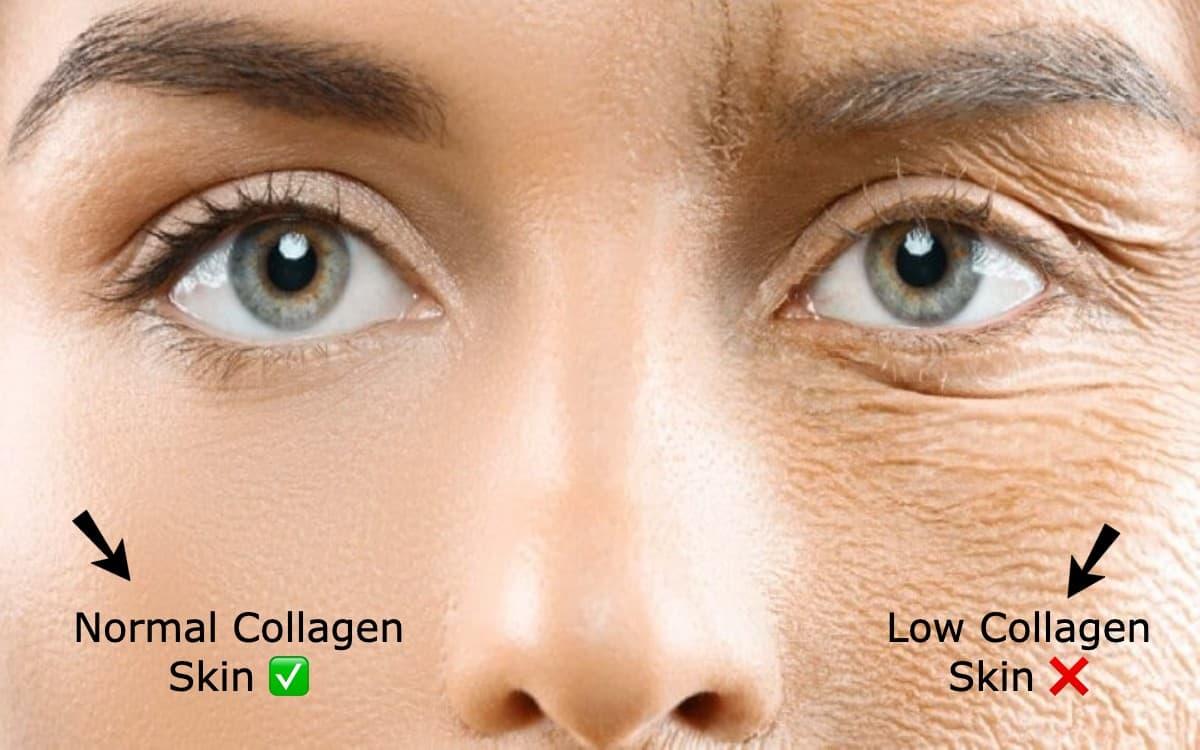
Collagen is the most abundant protein in the human body and is essential for beautiful, youthful, and healthy skin.
As we age, our bodies produce less and less collagen, leading to sagging skin, fine lines and wrinkles, joint discomfort, weakened bones and muscles, digestive issues, and slower healing.
By the age of 60, most people have lost about 30% of their collagen, resulting in the visible signs of aging. Replenishing collagen levels can restore a more youthful appearance and improve whole body health.
Unfortunately, most people believe that painful injections or expensive medical treatments are the only solutions. However, you can naturally increase your collagen production through diet, lifestyle changes, and supplements.
This comprehensive guide on How to Increase Collagen Production Naturally Through Diet, will explore easy, affordable ways to boost your collagen for firmer skin, reduced wrinkles, eased joint pain, stronger nails and hair, and much more. Read on to unlock the fountain of youth that lives within!
I. What is Collagen and Why Do We Need It?
Collagen is the structural protein that holds the body together. It makes up 30% of total protein content and 75% of skin. Collagen gives skin its structure and firmness.
It also provides the framework for connective tissues throughout the body like joints, bones, muscles, hair, nails, blood vessels and organs.
There are at least 16 types of collagen in the human body, but 80-90% consists of types I, II, and III:
- Type I – Forms skin, scar tissue, tendons, organs and bone
- Type II – Forms cartilage and connects joints
- Type III – Forms blood vessels and organs
As the main component of connective tissue, collagen fibers strengthen and support the skin and internal organs. Think of collagen as the “glue” that holds the entire body together.
Also Read: Best Vitamins for Female Hair Growth
Collagen Keeps Us Youthful and Healthy By:
- Keeping skin firm, supple, smooth and elastic
- Supporting strong bones to avoid fractures and breaks
- Cushioning joints, reducing pain and inflammation
- Promoting gut health and healing leaky gut
- Strengthening hair and nails to boost growth
However, after the age of 25, collagen production drops by 1-2% per year. As the decline progresses, it leads to visible aging effects like wrinkles, sagging skin, and joint issues. Decreased collagen also impairs injury recovery, increases bone and muscle loss, and slows metabolism.
Boosting collagen supply can help reverse and protect against these age-related changes for an overall healthier, youthful you!
II. Benefits of Collagen
Increasing collagen intake provides whole body benefits beyond just better looking skin. Consuming more collagen promotes:
A. Skin and Anti-Aging Effects
- Smoothes fine lines and wrinkles
- Improves skin texture and brightness
- Increases skin firmness, elasticity and hydration
- Accelerates healing of wounds, scars and burns
- Protects from sun damage and premature aging
Clinical studies found taking just one gram of collagen daily significantly reduced signs of skin aging – including up to a 14% increase in skin moisture!
B. Joint Support
Rebuilding cartilage and collagen provides extensive joint and bone health benefits:
- Decreases joint inflammation and pain
- Increases flexibility and range of motion
- Speeds recovery from joint injuries
- Protects from osteoarthritis
- Strengthens bones to prevent fractures
In medical studies, collagen supplements reduced arthritis symptoms by 50-80%. They’ve also been shown to decrease bone loss during menopause by up to 84%.
C. Injury Prevention and Recovery
- Collagen aids recovery and healing from sports injuries
- Reduces exercise-induced joint and muscle pain
- Strengthens tendons and ligaments to prevent future injuries
- Accelerates wound closure with less scarring
Athletes report improved performance, less pain, faster recovery, and lower future injury rates when supplementing with collagen.
D. Gut and Digestive Health
Collagen helping heal leaky gut syndrome to improve:
- Nutrient absorption
- Bowel regularity
- Inflammatory bowel diseases
- Stomach ulcer healing
Glycine – one of collagen’s amino acids – also promotes restful sleep and calms anxiety.
E. Heart Health
- Strengthens arteries and blood vessels
- Lowers bad LDL cholesterol
- Reduces plaque buildup
- Normalizes blood pressure
- Prevents atherosclerosis and heart attack risk
III. Signs You May Need More Collagen
If you are experiencing any of the following, it may indicate your body needs more collagen:
A. Wrinkles and Fine Lines
Collagen keeps skin firm, supple, and resilient. As we lose collagen, skin sags and wrinkles become noticeable. Boosting collagen can reduce and prevent fine lines.
B. Weak or Brittle Nails
Nails contain collagen to keep them strong. Increasing collagen prevents cracked, brittle nails by supporting nail growth and health.
C. Joint Discomfort
Our joints have the highest collagen concentration in the body after skin. Declining collagen leads to joint deterioration, pain, and flexibility issues. More collagen protects and repairs cartilage.
D. Bone Loss
Collagen meshes with calcium to form bone matrix. With age, declining collagen contributes to porous, weaker bones that break easier.
E. Digestive Issues
Collagen helps maintain the intestinal lining that keeps undigested food and bacteria from entering the bloodstream (leaky gut). More collagen can heal irritated digestive systems.
F. Poor Wound Healing
Collagen facilitates quick and efficient healing. Low collagen causes slow recovery with increased scarring. Boosting collagen helps wounds mend faster with less scarring.
If any of the above resonates, your body likely needs supplemental collagen to restore youthful functioning. Keep reading to discover the top dietary sources!
Also Read: Alpine Ice Hack Pills To Lose Weight
IV. Foods That Increase Collagen Production
The following foods contain collagen-boosting nutrients like amino acids, vitamin C, copper, and antioxidants:
A. High in Vitamin C
Vitamin C activates cells that manufacture collagen and also prevents damage from free radicals.
Great vitamin C foods include:
- Citrus Fruits – oranges, grapefruit, lemons
- Bell Peppers
- Broccoli
- Strawberries
- Tomatoes
Aim for at least 100mg vitamin C daily from food and supplements. Consider adding a vitamin C serum topically too.
B. Contains Glycine and Proline
These amino acids are collagen’s building blocks. The body uses them to form new collagen fibers.
Top glycine and proline sources are:
- Bone Broth – extremely high in usable collagen
- Meat, Poultry, Fish
- Eggs
- Dairy Products like milk, cheese, yogurt
C. Rich in Vitamins A, E and Minerals
Antioxidants A and E guard against collagen-damaging free radicals. Copper and zinc are also vital for collagen production.
Great options include:
- Spinach – high in vitamin A
- Carrots – excellent source of vitamin A
- Avocado
- Sweet Potatoes
- Zinc & Copper foods – oysters, nuts, seeds, legumes, shellfish
Aim for zinc-rich foods 2-3 times a week and copper-containing foods daily.
V. Collagen Destroyers to Avoid
Just as important as consuming collagen-boosting foods is avoiding collagen-damaging substances like:
A. Sugar and Refined Carbs
Excess sugar in the blood through a high glycemic diet triggers advanced glycation end products (AGES) that break down collagen.
B. Excess Sunlight Exposure
UV radiation from the sun degrades collagen and elastin in the skin, causing premature aging.
C. High Cortisol Levels
Elevated cortisol increases inflammation and collagen breakdown. Managing stress levels can help optimize collagen.
D. Smoking (tobacco and vaping)
Cigarette smoke releases enzymes that damage collagen, elastin, and DNA in skin cells.
E. Excessive Alcohol
Alcohol dehydrates the body, increasing the appearance of wrinkles. It also produces skin-damaging free radicals.
Limiting these collagen destroyers through diet, lifestyle, skin protection, and avoiding unhealthy habits preserves and builds more healthy collagen.
VI. Other Lifestyle Strategies for More Collagen
In addition to diet, other lifestyle factors support natural collagen production:
A. Staying Hydrated
Drinking adequate water supports collagen production and gives skin a plumper, less wrinkled appearance.
B. Getting Regular Exercise
Working out boosts circulation and oxygen delivery to stimulate collagen growth. Just avoid excessive cardio which increases cortisol.
C. Managing Stress
Lowering elevated cortisol from chronic stress enables enhanced collagen remodeling. Adaptogens like ashwagandha also reduce anxiety.
D. Protecting Skin from Sun Exposure
Using SPF daily shields skin from UV damage that destroys collagen and accelerates aging. Wear wide-brimmed hats too.
E. Considering Collagen Supplements
If food sources are inadequate, quality collagen supplements provide missing amino acids to build new collagen. They may also block enzymes that degrade collagen. Look for hydrolyzed collagen peptides from grass-fed, pasture-raised animals. Start with 10-15 grams daily.
Combined with dietary antioxidants and vitamins, collagen supplements can effectively increase collagen density for youthful skin and better health in as little as 4-8 weeks.
Top 5 Nutrients To Boost Collagen Production
VII. Sample Recipes and Meals to Boost Collagen Production
Implementing more collagen-boosting foods into your routine is easy and delicious. Try these ideas:
Breakfast:
- Veggie Omelet – Eggs, tomatoes, spinach, onions, peppers
- Berry Smoothie – Collagen peptides, frozen berries, banana, milk/nut milk
- Avocado Toast – Sourdough bread, mashed avocado, sunny side egg
Lunch:
- Big Salad – Greens, carrots, peppers, mushrooms, chickpeas, lemon juice dressing
- Chicken & Rice Soup – Bone broth, chicken, rice/quinoa, vegetables
- Fish Tacos – Baked tilapia, corn tortillas, cabbage, avocado, cilantro
Snacks:
- Hummus with carrots, celery and red pepper strips
- Greek yogurt parfait with berries, nuts, cinnamon
- Apple slices with peanut or almond butter
Dinner:
- Broccoli Beef Stir Fry – Flank steak, broccoli, peppers, onions, garlic over rice
- Pork Tenderloin – Roasted sweet potato wedges and side salad
- Shrimp Fajitas – Sauteed peppers and onions with avocado
Beverages:
- Green Juice – Spinach, celery, cucumber, lemon, ginger, stevia
- Golden Milk – Turmeric, ginger, cinnamon, black pepper, nut milk
- Smoothie – Blueberries, banana, spinach, almond milk, collagen peptides
With smart food choices, strategic supplements, and positive lifestyle factors, restoring youthful collagen levels is easy and enjoyable!
Also Read: How Collagen Affects Skin Elasticity Over Time
Conclusion on How to Increase Collagen Production Naturally Through Diet
As we age, declining collagen production leads to wrinkles, sagging skin, joint pain, weakened nails and hair, injured muscles and bones, leaky gut, and slower healing.
Boosting collagen supply through strategic dietary choices provides the amino acids and vitamins needed to rebuild youthful collagen levels.
This restores skin elasticity, smooths wrinkles, eases joint discomfort, speeds injury recovery, strengthens nails and hair, heals leaky gut, supports stronger bones, and more.
Foods highest in collagen-stimulating nutrients include bone broth, vitamin C fruits/veggies, eggs, organ meats, citrus fruits, dark green vegetables, berries, avocado, nuts and seeds.
Avoiding collagen destroyers like sugar, excess sun, smoking, and high stress also optimizes collagen regeneration. Staying active, drinking enough water, managing stress, and taking collagen supplements provides added anti-aging benefits.
With a consistent focus on collagen-supporting lifestyle behaviors, regaining a youthful supply is simple and attainable at any age. Don’t resign yourself to looking older and feeling unhealthy.
Choose to rebuild your collagen stores starting today. Your skin, joints, bones, digestion, physical abilities, hair and nails will thank you!
FAQs: Frequently Asked Questions on How to Increase Collagen Production Naturally Through Diet
What is the best collagen supplement?
Look for a multi-collagen complex containing types I, II, III, V and X from grass-fed, pasture-raised bovine or marine sources. Hydrolyzed collagen peptides are most bioavailable. Dosages between 10-15 grams daily are ideal.
When is the best time to take collagen?
Take collagen supplements first thing in the morning or before bed on an empty stomach. This ensures maximum absorption by allowing slower digestion compared to with food.
How long does it take for collagen supplements to work?
Improvements in skin, hair, nails, joints and other collagen-based tissues are noticeable typically within 4-8 weeks. Maximum benefits often occur around the 3-6 month mark with continued use.
Can too much collagen be harmful?
Unless you have a specific sensitivity, collagen is very safe even at higher doses. Moderately increasing collagen intake almost always provides helpful anti-aging, joint support and digestive benefits with very minimal risk.
Do collagen pills work for wrinkles?
Yes! Clinical studies confirm consistent use of collagen supplements reduces wrinkles, boosts skin moisture and elasticity, smooths fine lines, and thickens both the dermis and epidermis for visibly improved appearance.
What destroys collagen?
Factors that degrade collagen include excessive sugar consumption, high stress, nutrient deficiencies, smoking, sun overexposure, normal aging after 25 and health conditions like autoimmunity. Protecting collagen stores is vital!
Which foods are highest in collagen?
The richest natural food sources of collagen include bone broth, organ meats like liver, egg whites, fish skin and scales, spirulina, blackberries, raspberries and citrus fruits. A balanced diet helps, but targeted supplementation ensures you get enough.
References
iZdzieblik, D. et al. “Collagen peptide supplementation in combination with resistance training improves body composition and increases muscle strength in elderly sarcopenic men: a randomised controlled trial.” The British Journal of Nutrition 114.6 (2015): 887-900. this Study
- Asserin, J. et al. “The effect of oral collagen peptide supplementation on skin moisture and the dermal collagen network: evidence from an ex vivo model and randomized, placebo-controlled clinical trials.” Journal of Cosmetic Dermatology 14.4 (2015): 291-301. https://onlinelibrary.wiley.com/doi/10.1111/jocd.12174
- Clark, K. L. et al. “24-Week study on the use of collagen hydrolysate as a dietary supplement in athletes with activity-related joint pain.” Current Medical Research and Opinion 24.5 (2008): 1485-1496. https://www.tandfonline.com/doi/abs/10.1185/030079908X291967
- Borumand, Maryam, and Sara Sibilla. “Effects of a nutritional supplement containing collagen peptides on skin elasticity, hydration and wrinkles.” Journal of medical nutrition and nutrients 2.1 (2015): 28-36.https://www.researchgate.net/publication/285571442_Effects_of_a_Nutritional_Supplement_Containing_Collagen_Peptides_on_Skin_Elasticity_Hydration_and_Wrinkles
- Doctors Stunned: New Gluco Savior “Sugar Hack” Secretly Reverses Diabetes – Remedy That’s Transforming Lives! -
- Female Hormone Levels Menopause – Hidden Agony of Menopause, How One Supplement is Transforming Menopausal Lives! -
- Hot Flashes After Menopause – Your Ultimate Guide to the Best Supplement for Hot Flashes and Night Sweats -
Celeb News
Best Vitamins for Female Hair Growth: These 7 Vitamins Will Change Your Hair Game Forever!

Healthy, lush hair is often seen as a sign of beauty and youthfulness. However, many women struggle with lackluster locks and hair loss as they age. The reasons behind this are complex, but nutrition is thought to play a major role.
Supplementing your diet with key hair growth vitamins can provide the building blocks needed for your strands to reach their maximum strength and shine.
But with so many options on the market, it can be overwhelming to determine which are actually effective.
This comprehensive guide on best vitamins for female hair growth, will walk you through everything you need to know about using vitamins, from the science behind how they stimulate hair follicles to tailoring the best supplement regimen for your unique needs.
Read on to unlock the secrets to nourished, flowing tresses that will turn heads!
Understanding Female Hair Growth
To determine which vitamins can boost hair health, it helps to first understand the phases of the hair growth cycle.
A. Hair Growth Cycle Explained
Hair follicles go through three distinct stages:
- Anagen Phase: This is the active growth period where strands elongate rapidly. It generally lasts 2-7 years.
- Catagen Phase: This transitional phase signals the end of active growth. The follicle shrinks over a period of 2-3 weeks.
- Telogen Phase: The resting phase follows, which lasts around 3 months. Up to 100 hairs naturally shed per day during this time.
Also Read: How Collagen Affects Skin Elasticity Over Time
B. Factors Affecting Female Hair Growth
There are several influences on the hair cycle in women:
- Hormonal Changes: Fluctuations in estrogen, progesterone, and testosterone associated with puberty, menstruation, pregnancy, and menopause can shift the balance of hair follicle activity.
- Nutritional Deficiencies: Inadequate intake of proteins, vitamins, and minerals needed to construct hair shaft components may hinder growth.
- Stress and Lifestyle: High stress levels, crash dieting, smoking, and nutrient-poor diets can prematurely push more follicles into the shedding telogen phase.
Getting to the root of underlying issues is key for determining how to best encourage healthy hair growth through nutritional support.
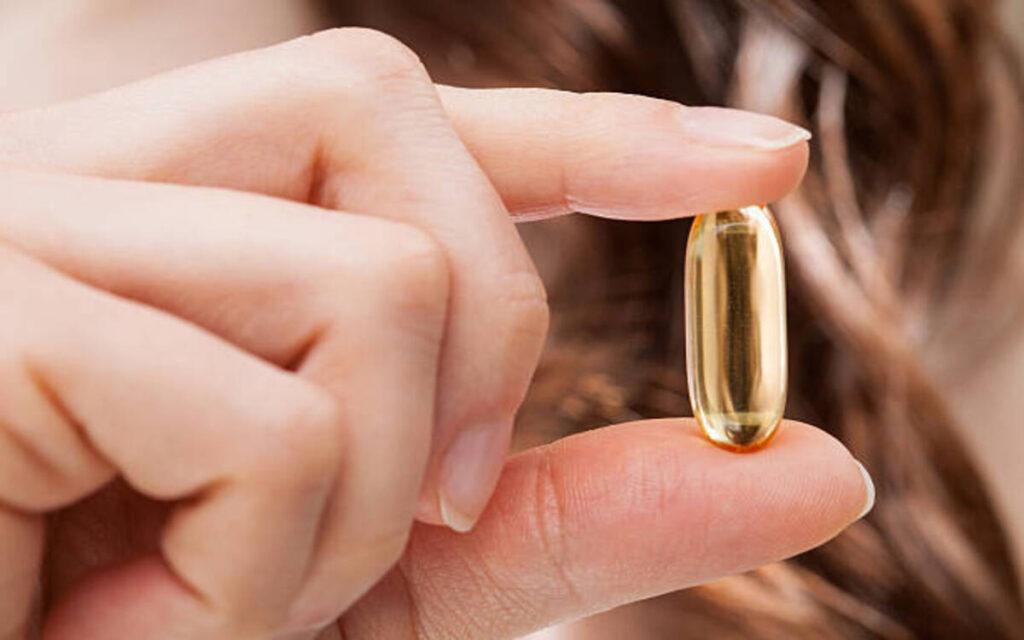
Essential Vitamins for Female Hair Growth
Certain vitamins play integral roles in promoting robust and rapid hair formation. Deficiencies in the following compounds can manifest in a range of unwanted symptoms from thinning and shedding to slowed growth.
A. Vitamin A
- Benefits for Hair Health: This fat-soluble vitamin supports cell growth and protects and nourishes the scalp. It also keeps sebum production balanced to avoid dandruff.
- Food Sources and Supplements: Liver, sweet potatoes, carrots, spinach, fish oil, and retinol supplements.
- Recommended Dosage: 700-900 mcg RAE (retinol activity equivalents) per day.
B. B-Vitamins (Biotin, B5, B12)
- Impact on Hair Growth: This complex strengthens strands, prevents premature graying, reduces hair loss, and helps follicles grow at an optimal rate.
- Food Sources and Supplements: Meat, eggs, legumes, nuts, seeds, nutritional yeast, whole grains, and B-complex.
- Recommended Dosage: RDA is 30 mcg of biotin, 5 mg of pantothenic acid (B5), and 2.4 mcg of B12 per day.
C. Vitamin C
- Antioxidant Properties and Hair Health: Vitamin C fights damage from free radicals, boosts collagen production, improves iron absorption for oxygen circulation, and preserves vitamin E levels.
- Food Sources and Supplements: Citrus fruits, red bell peppers, broccoli, strawberries, and vitamin C tablets.
- Recommended Dosage: 75-90 mg per day. Those who smoke may need an additional 35 mg.
D. Vitamin D
- Influence on Hair Follicles: This “sunshine vitamin” modulates cell growth and regeneration. Deficiency can lead to alopecia areata patches.
- Food Sources and Supplements: Fatty fish, eggs, fortified dairy and juices, and vitamin D capsules.
- Recommended Dosage: 600-800 IU, or 15 mcg, per day. Levels should be tested for those at higher risk of deficiency.
E. Vitamin E
- Nourishment for Hair: This antioxidant promotes scalp circulation, repairs damage, and encourages new follicle formation.
- Food Sources and Supplements: Vegetable oils, nuts and seeds, spinach, broccoli, shrimp, trout, and vitamin E oil capsules.
- Recommended Dosage: 15 mg per day or 400-800 IU of natural or mixed tocopherols and tocotrienols. Can increase up to 1,600 IU daily for hair regrowth.
Incorporating these essential hair nutrients through whole food sources gives you optimal benefit. But specific vitamin supplementation can provide nutritional insurance when needed.
Best Practices for Maximizing Vitamin Absorption
While nutritional supplements can help fill gaps, a multifaceted approach works best for supporting healthy hair follicle function.
A. Balanced Diet for Optimal Hair Health
Eat a wide variety of vitamin- and mineral-rich whole foods every day. Prioritize plenty of proteins, omega-3s, iron, zinc, folate, and vitamins A, C, D and E. Stay hydrated and maintain a healthy weight.
B. Importance of Hydration
Drink at least 64 ounces of water daily to enhance dietary nutrient bioavailability. Dehydration can exacerbate hair loss.
C. Avoiding Excessive Stress
Find healthy ways to manage emotional stress, which triggers increased cortisol and premature shedding. Consider yoga, meditation, journaling, or speaking with a therapist.
D. Regular Exercise for Improved Circulation
Aim for 150 minutes per week of moderate activity like walking, swimming or gentle cycling. This oxygenates the scalp, nurtures growth, and manages stress.
Following these best practices reduces hair damage and optimizes your ability to attain vitamins’ full benefits.
V. Consulting a Healthcare Professional
While over-the-counter vitamins can provide a helpful boost, getting personalized guidance from a doctor or dietitian is advised as well.
A. Importance of Seeking Advice
A practitioner can help uncover potential nutrient deficiencies or health conditions contributing to your hair troubles through testing. This allows for tailored treatment plans.
B. Testing for Nutritional Deficiencies
Blood tests check vitamin D, iron, zinc, and thyroid hormone levels. Scalp biopsies diagnose inflammatory disorders. Trichoscopy assesses follicle density.
C. Customized Vitamin Supplementation Plans
The right supplements and dosages depend on identified shortfalls, dietary restrictions, menopause status, extent of shedding, and hair texture. Professionals create targeted regimens.
Working with a healthcare provider to get to the root of your issues ensures wise vitamin use for optimal results.
Lifestyle Changes to Promote Healthy Hair Growth
While nutritional supplementation is key, tending to tresses with thoughtful care and avoiding damage will maximize hair vitality.
A. Proper Hair Care Routine
- Shampoo gently every other day with sulfate-free formulas
- Condition regularly, concentrating on the ends
- Detangle strands slowly with a wide-tooth comb
- Let air dry when possible to prevent breakage
- Sleep on silk pillowcases to avoid friction
B. Avoiding Harsh Styling Practices
- Limit use of excessive heat from blowdrying, straightening, or curling
- Wear protective styles like braids, buns, or wigs sparingly
- Switch up tight ponytails or buns frequently to prevent traction alopecia in the hairline
C. Using Gentle Hair Products
- Opt for formulas without parabens, phthalates or mineral oils
- Do an allergy test when using new products to detect irritation
- Rotate between various lines to prevent ingredient sensitivities
D. Regular Trims and Scalp Massages
- Trim split ends every 8-12 weeks to prevent propagating damage
- Massage the scalp daily to stimulate circulation and drainage
Making these positive hair care changes lets strands thrive while your targeted vitamin regimen boosts growth.

Topical Treatments and Their Efficacy
While most vitamin-based hair growth solutions are taken orally, some nourishing products can be directly applied to the scalp and locks. These include:
A. Serum Oils
- Multi-vitamin blends with vitamins A, B, C, D, and E
- Essential oils like rosemary, peppermint, and tea tree
- Natural DHT blockers such as pumpkin seed and black cumin seed
- Scalp-stimulating ingredients like caffeine and menthol
B. Shampoos and Conditioners
- Contain hair-strengthening amino acids and proteins
- Reinforce and protect with panthenol (vitamin B5)
- Boost shine and manageability with smoothing oils
These topical solutions provide added skin and follicle nourishment when used alongside internal vitamin supplementation. Rotate products to avoid ingredient sensitivity. Conduct patch tests before using any new serums or washes.
While not as potent, they can provide complementary antioxidant support, fortification, and growth encouragement when applied thoroughly into the scalp and along the hair shaft.
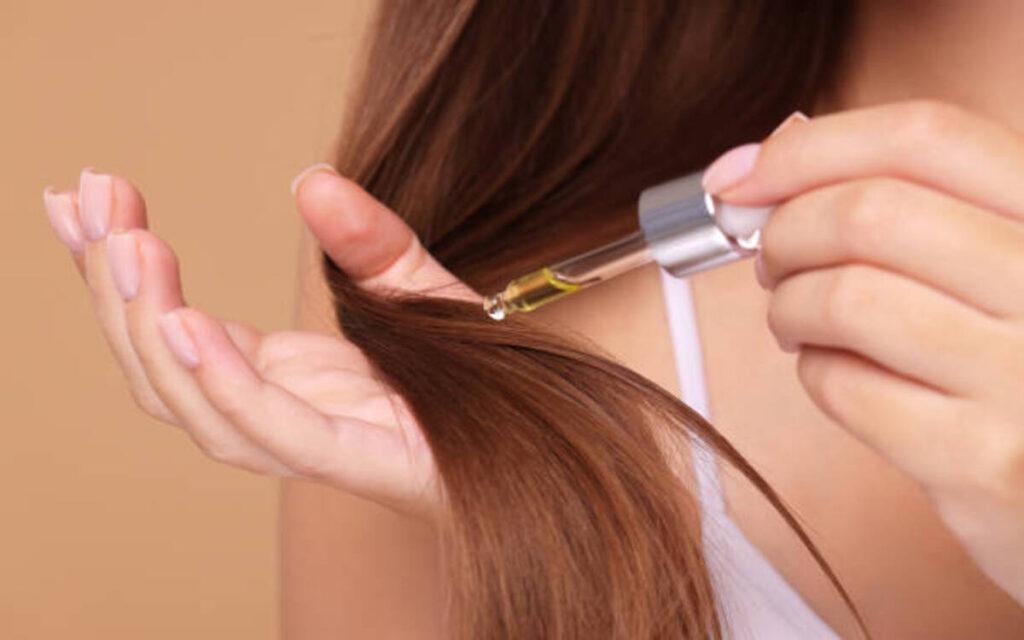
Supplements vs. Natural Sources
Should you obtain hair vitamins solely from the foods you eat? Or is taking a daily supplement also advised? The best approach depends on your individual needs and eating patterns.
A. Benefits of Natural Intake
When possible, nutrients from whole food sources allow for superior bioavailability and absorption. A balanced diet with abundant hair vitamins naturally optimizes growth.
B. When to Consider Supplements
Those following restrictive diets like veganism/vegetarianism, managing gastrointestinal conditions, or lacking key vitamins can benefit from targeted supplementation.
Choose quality products with vitamins/minerals in bioavailable forms like methyl B12 and zinc picolinate. Vegetarian capsules ensure broader compatibility. Supplementation complements dietary improvements for total coverage.
Ultimately a two-pronged plan of eating vitamin-rich foods AND taking a supplement proves most efficacious. Tailor your approach based on unique factors like health status, dietary patterns, hair needs, and doctor recommendations.
FAQ on Best Vitamins for Female Hair Growth
Still have questions about using vitamins to maximize your hair growth potential? Here are answers to some frequently asked questions:
A. Which hair growth pills have proven effectiveness?
Some top-rated options backed by research are Nutrafol, Viviscal, SugarBearHair, Hum Nutrition Hair Sweet Hair, and Naturenetics HairAnew. Look for formulas with biotin plus a range of B-vitamins, vitamin D, iron, zinc, and botanical extracts like ashwagandha and curcumin.
B. What nutrients promote hair thickness and growth?
Biotin, collagen, keratin, zinc, as well as vitamins C, D, and E drive optimal follicle function and production of lustrous strands.
C. How does Nutrafol contribute to hair growth in women?
It delivers a balanced daily dose of biotin, nutrients, and adaptogens to nourish follicles and address stressors. The formula targets and supports all stages of the growth cycle in just 3-6 months.
D. Can Viviscal supplements significantly improve hair growth?
Yes, in part due to its marine complex component AminoMar C. This provides proteins essential to construct hair keratin while also reducing follicle-damaging inflammation.
E. What are the top hair vitamin recommendations for black hair?
Look for hair vitamins with biotin, vitamins D, E, and B-complex plus collagen, MSM sulfur, silica, and omega fatty acids to encourage robust black hair growth.
F. Does biotin play a role in enhancing women’s hair growth?
Yes, biotin is integral to hair health as it helps produce keratin while supporting cell regrowth and retention within follicles. Most hair supplements provide over 100% of your RDA.
Conclusion on Best Vitamins for Female Hair Growth
Achieving your longest, strongest, and healthiest hair yet is within reach with the help of targeted vitamin supplementation.
A. Recap of Key Points
Strategically nourish follicles and remedy deficiencies with hair vitamins containing compounds like biotin, vitamins A, B-complex, C, D, E as well as iron, zinc, silica and MSM sulfur. Combining a balanced whole food diet, lifestyle changes and topical treatments optimizes results.
B. Empowering Women for Better Hair Health
Take control of your hair destiny despite hormonal transitions, stressors, or health conditions depleting your mane. Commit to proper hair care, stress management, regular exercise, drinking enough water and getting sufficient sleep nightly.
C. Encouragement to Implement Changes for Optimal Results
Be patient but persistent and proactive in your efforts – new growth can take at least 3 months to make significant improvements. But staying disciplined with targeted vitamins, thoughtfully applied products, and positive lifestyle shifts leads to noticeable increases in density, shine, strength and length over time.
You have all the tools you need to uncover your best tresses yet. Now take that first step to hair rejuvenation and radiance! Your most confident, crowned-with-glory self awaits.
References
- The 14 Best Vitamins for Hair Growth – Healthline article reviewing the scientific evidence on which vitamins boost hair health. Covers biotin, vitamins D, C, iron, zinc and more.
- Do hair vitamins really work? – Medical News Today explores the efficacy of hair growth vitamin supplements, including for pattern baldness and which ingredients show promise through research.
- Iron Deficiency Anemia and Hair Loss: Is There a Link? – Healthline examines whether low iron levels can trigger hair loss, provides diet tips to correct iron deficiency, and reviews treatment options.
- Doctors Stunned: New Gluco Savior “Sugar Hack” Secretly Reverses Diabetes – Remedy That’s Transforming Lives! -
- Female Hormone Levels Menopause – Hidden Agony of Menopause, How One Supplement is Transforming Menopausal Lives! -
- Hot Flashes After Menopause – Your Ultimate Guide to the Best Supplement for Hot Flashes and Night Sweats -
-
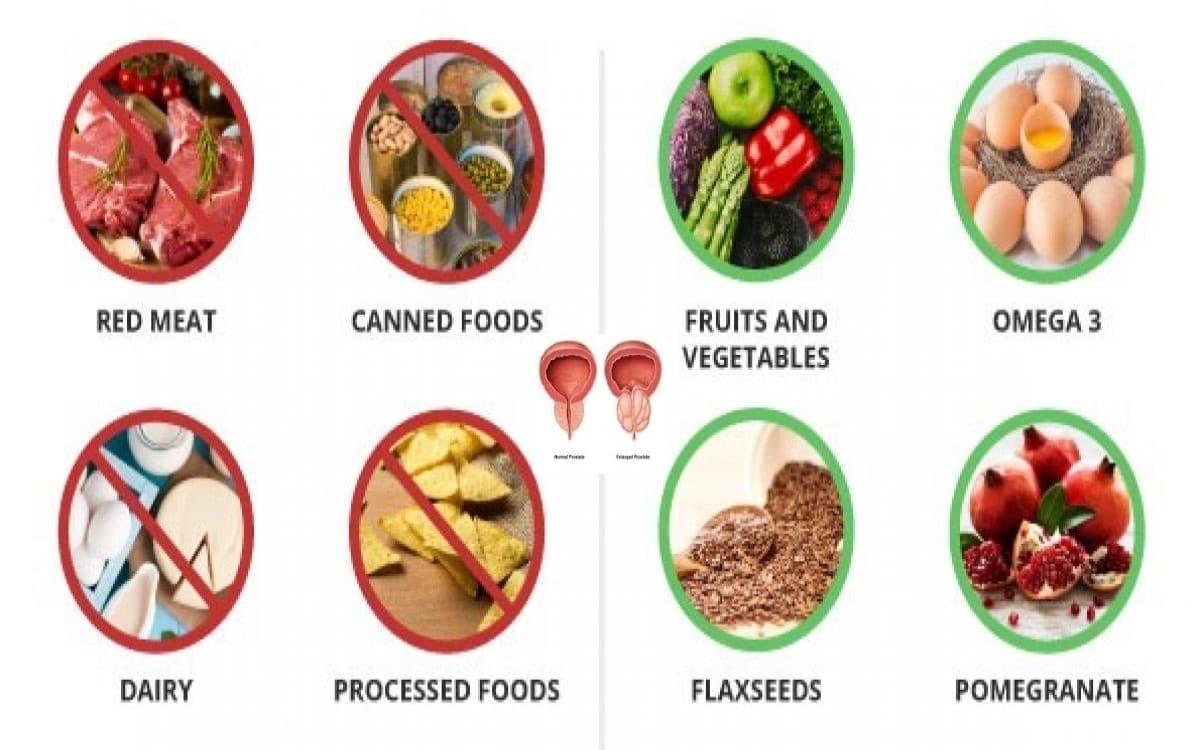
 Food7 years ago
Food7 years agoFoods to Avoid for Prostate Health – What Not to Eat If You Have An Enlarged Prostate
-
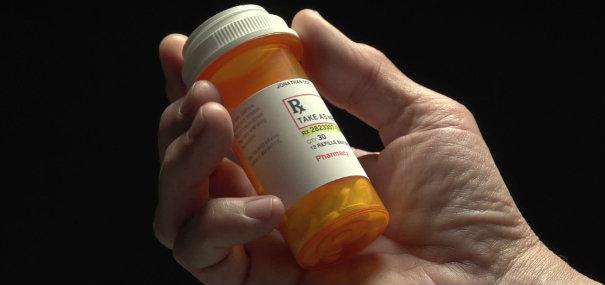
 Diabetes6 years ago
Diabetes6 years agoMetformin Side Effects – Why Doctors In The Know No Longer Prescribe Metformin
-

 Uncategorized2 years ago
Uncategorized2 years agoTop Rated ED Treatment Tablets In 2024 – Men, Should Try This Tonight and You’ll Never Need Viagra Again!
-
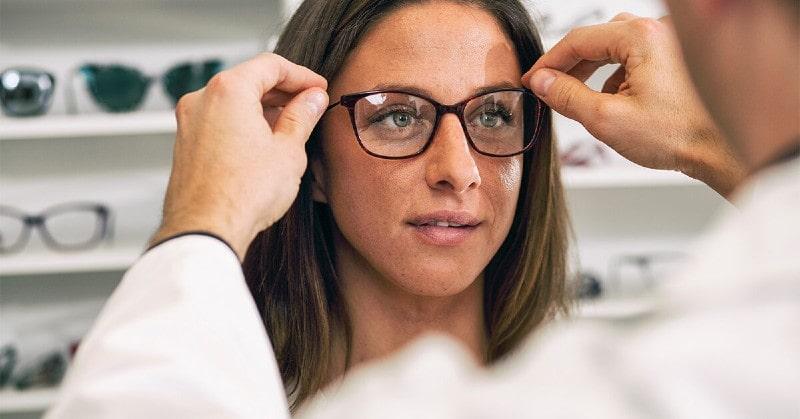
 America's Best2 years ago
America's Best2 years agoAmerica’s Best Contacts EyeGlasses – What They Don’t Tell You “Pros and cons”
-

 Celeb News1 month ago
Celeb News1 month agoKhalife Sisters’ Shark Tank CBD Gummies – Jaws Drop Over Sisters’ CBD Gummies That Fix Pain, Anxiety and Sleep Issues
-
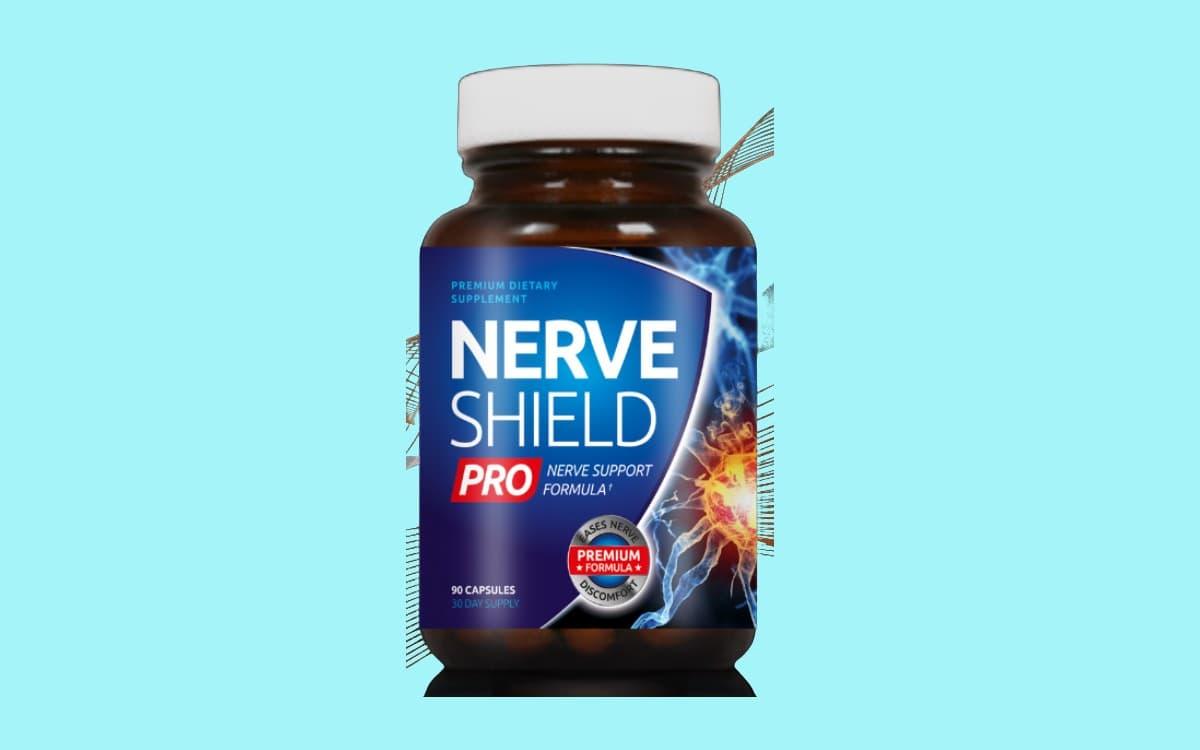
 Fitness2 months ago
Fitness2 months agoNerve Shield Pro Review – Supports Nerves Health, Does This Supplement Work or Fake Formula?
-
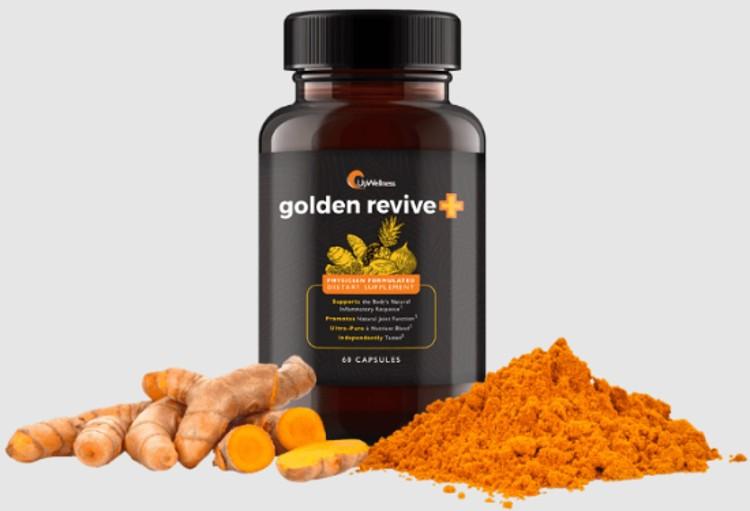
 Golden Revive Plus2 years ago
Golden Revive Plus2 years agoGolden Revive Plus Customer Reviews – Your Joints, Muscles and Nerves will immediately begin to heal Fast?
-

 Uncategorized2 years ago
Uncategorized2 years agoGolden Revive Plus Customer Reviews – Your Joints, Muscles and Nerves will immediately begin to heal Fast?



